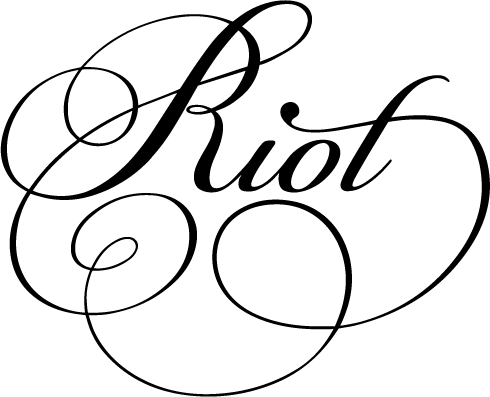A.K. Blakemore wins Desmond Elliott Prize 2021 with “stunning” debut The Manningtree Witches
2 Jul 2021 -
The National Centre for Writing (NCW) has today announced A.K. Blakemore’s The Manningtree Witches as the winner of the Desmond Elliott Prize 2021. The historical fiction novel, praised by judges as “clever and unexpected”, is chosen as the best first novel across the UK and Ireland this year from a strong shortlist which also featured little scratch by Rebecca Watson and The Liar’s Dictionary by Eley Williams.
In addition to the £10,000 prize money, Blakemore will receive a tailored year-round platform of support and mentorship from NCW, which runs the Desmond Elliott Prize as part of its Early Career Awards portfolio.
The Manningtree Witches plunges readers into the fever of the English witch trials of the 17th century. The fatherless and husbandless Rebecca West is barely tolerated by the affluent villagers in Manningtree, which has been depleted of men since the wars between the Roundheads and the Cavaliers began. Then newcomer Matthew Hopkins, a mysterious, pious figure dressed from head to toe in black, takes over The Thorn Inn and begins to ask questions about the women on the margins of society.
It was chosen as the best first novel of the year by a judging panel chaired by author and previous Desmond Elliott Prize winner, Lisa McInerney, who was joined by journalist and author Chitra Ramaswamy and book reviewer and broadcaster Simon Savidge. Lisa McInerney said: ‘The Manningtree Witches is a stunning achievement. Blakemore takes limited historical detail and, with what seems like effortless grace and imagination, crafts a breathing, complex world full of wrenchingly human characters, and tells us their stories in language that bears endless rereading, so clever and unexpected and pleasurable it is.’
National Centre for Writing’s programme director Peggy Hughes commented: ‘In an extraordinary year to publish a debut novel, we nevertheless encountered a huge number of wonderful, ambitious, exciting new books. A.K. Blakemore’s The Manningtree Witches stood out from the crowd however, and we’re hugely excited to be able to support her career, and to see where her writing will take her – and us – next.’
A.K. Blakemore is the author of two full-length collections of poetry: Humbert Summer (Eyewear, 2015) and Fondue (Offord Road Books, 2018), which was awarded the 2019 Ledbury Forte Prize for Best Second Collection. Her poetry and prose writing has been widely published and anthologised, appearing in the London Review of Books, Poetry and Poetry Review, among others.
The Early Career Awards portfolio also includes the University of East Anglia (UEA) New Forms Award for an innovative and daring new voice in fiction and the Laura Kinsella Fellowship which recognises an exceptional writer who has experienced limiting circumstances or is currently underrepresented in literary fiction.
The UEA New Forms Award was judged by writer Yan Ge, with Professor Henry Sutton of UEA and Simon Jones, who produces NCW’s The Writing Life podcast. It is awarded to Charlotte Geater, who has a PhD from the University of Kent in Creative Writing: The Contemporary Novel, and whose pamphlet Poems for my FBI Agent was published by Bad Betty Press in 2020.
Of Geater’s entry, Yan Ge said: ‘Charlotte Geater is a writer of extraordinary talent and vigorous creative ambition. Her work looks into personal trauma, local history and the life and work of Byron through the prism of illness. In unfeigned and effortless prose, she enquires intensely and deeply into the pain and exhilaration of being human.’
The Laura Kinsella Fellowship was judged by Kerry Hudson and Eva Verde with NCW Communications Manager Stephanie McKenna. It is awarded to Harminder Kaur. After studying creative writing at UEA as part of her degree in Literature and Film, and an MA in Literature at Sussex, Harminder’s life was interrupted by the onset of schizophrenia while she was studying for a PhD in Cultural Theory at Hull. She is currently writing a work of literary fiction called Psychotic Episodes, which is made up of a series of linked stories about mental illness, race, and faith.
Of Kaur’s work, Kerry Hudson said: ‘We felt Harminder’s work showed enormous presence. She’s a writer of power and honesty and the piece both moved and provoked thoughts in equal measure. We can’t wait to see what Harminder will do with this opportunity, and we feel very grateful that we got to read her work.’
Geater and Kaur will both receive £4,000 to assist them at the beginnings of their careers as well as a bespoke programme of support provided by the NCW, backed by Arts Council England.
NCW looks to celebrate the literary ecology and systems that help create writers and support a sustainable career, so all three winners have been invited to choose a selection of ten books, which NCW will gift to a library or school of their choice. NCW also asked readers to nominate their favourite independent bookshop, where the chosen reader received copies of the longlisted books and the winning bookshop received £500.
Running in parallel to the Early Career Awards is an online digital programme providing free resources for anyone, anywhere wanting to progress with their writing. Every two months NCW releases a bespoke support package with advice from established and new voices. Supported by the Arts Council England, this element of the Early Career Awards aims to widen the impact of literary prize culture.





